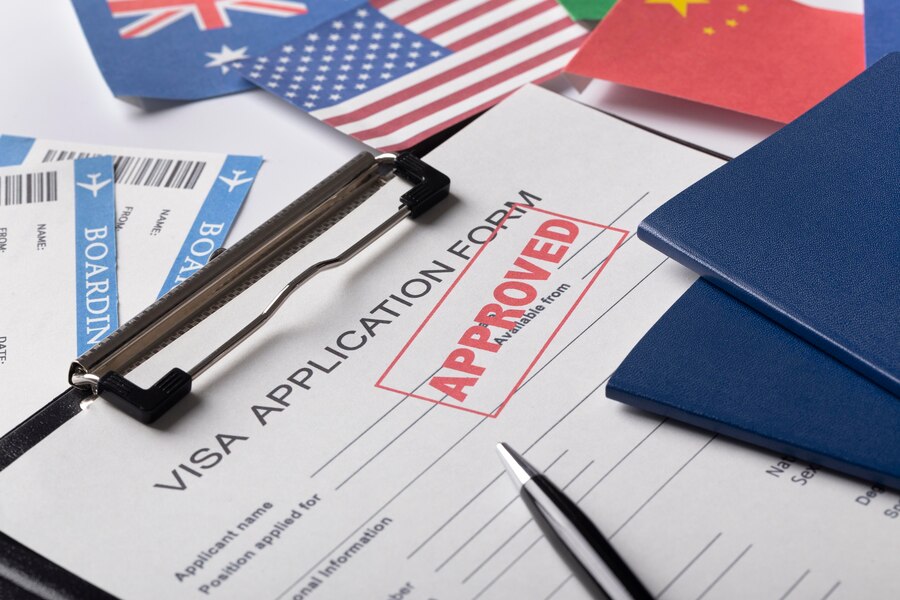Canadian Permanent Residency is one of the most sought-after statuses, which enables individuals to reside and work permanently in Canada. Canada is a place of high standards of living, cultural diversity, and many possibilities for immigrants to create a better life for themselves and their families. In this blog, we will look at the different routes and application tips.
The Canadian Permanent Residency is given to those who fit the specific requirements set by the government of Canada. Once permanent resident status is granted, individuals have the right to live and work in Canada indefinitely and can eventually apply for Canadian citizenship after meeting certain residency requirements.
With different paths leading to Canadian permanent residency, applicants must check the advantages and disadvantages of the options before choosing the immigration route that will most benefit them.
Each immigration program is different regarding its eligibility criteria, processing times, and requirements, so it is very necessary to research the various programs before applying.
Canadian Permanent Residency Immigration Routes
1. The Express Entry Program
The Express Entry system is one of the major channels foreign skilled workers use to acquire permanent residency in Canada.
It is a point-based system that opts for candidates (who are assessed on their proficiency level, work experience, language skills, educational background, and other factors) that can bring positive economic effects to the Canadian economy.
The Express Entry program has a lot of advantages. Not only does it give immigrants a faster route to permanent residency compared to other entry routes, but once they are successful, they are granted permanent residency, which enables them to live and work anywhere in Canada.
In addition, they can take their families with them, which will make it easier for them to live together in their new home, Canada.
After the person becomes a permanent resident, he or she will be able to apply for Canadian citizenship. With this, you have the right to vote, and healthcare are available.
Requirements and Eligibility Criteria:
Language Proficiency: Candidates need to show their knowledge of either English or French by sitting standardized tests, such as IELTS (for English) and TEF (for French).
Educational Credential Assessment (ECA): The educational qualifications from outside Canada must be evaluated by the designated organizations to make sure that they are equivalent to Canadian standards.
Work Experience: Job seekers should have recently had similar work experience, and it should be for at least 12 months of non-stop full-time and equivalent part-time work in the last 10 years.
Express Entry Profile: Candidates prepare an online curriculum vitae that contains information on their education, professional experience, language skills, and other important details.
How to Improve Your Profile for Success
Boost Language Skills: The enhancement of your language skills can be very crucial in increasing your Comprehensive Ranking System (CRS) score, which is used to rank the candidates in the Express Entry pool.
Gain Additional Education or Training: In addition, pursuing higher studies or additional training will bring you extra points on your CRS score, particularly if you are qualified in the more demanding field in Canada.
Secure a Job Offer: A reliable job offer from a Canadian employer can increase your CRS score. However, it is not mandatory to have a job offer to join the Express Entry pool.
Enhance Work Experience: Experience working in more education positions, especially with skilled occupations, will enhance the CRS score.
2. Provincial Nominee Programs (PNPs)
The Provincial Nomination Programs (PNPs) are amazing routes for those pursuing permanent residence in Canada.
As an alternative option to the Express Entry Program, PNPs give potential immigrants a chance to enter specific provinces based on their skills, work experience, and educational background.
Many provinces and territories cooperate with the federal government in terms of the nomination of permanent residents through the Express Entry system.
This collaboration enables provinces to pick candidates from the Express Entry pool who meet their specific needs and invite them to apply for provincial nominations.
Each province and territory, excluding Quebec, has its PNP with individual eligibility requirements and streams for immigration candidates, including skilled workers, entrepreneurs, investors, and international graduates.
The best part of this is that candidates who have been nominated receive additional points from the Comprehensive Ranking System (CRS), and their chances of receiving an Invitation to Apply (ITA) for permanent residency in the subsequent Express Entry draw are significantly increased.
Popular PNPs and their specific requirements
a) The Ontario Immigrant Nominee Program (OINP)
OINP, also known as the Ontario Immigration Program, offers immigration paths like the Human Capital Priorities Stream and the Employer Job Offer Stream. That way, skilled workers, international students, and entrepreneurs can apply for available positions in the province.
To qualify, candidates must meet all of the following requirements: a minimum of three years of work experience, proficiency in English or French, and a job offer from an Ontario employer.
b) British Columbia Provincial Nominee Program (BC PNP)
The streams of the program are the Skills Immigration and Express Entry BC streams, which focus on skilled workers, international graduates, and entrepreneurs.
The eligibility requirements indicate the job offers from companies in the British Columbia area and related work experience, as well as the financial assets needed for settlement.
c) The Alberta Immigrant Nominee Program (AINP)
The categories of people for this route are professionals, international students, and entrepreneurs. They mainly apply through the Alberta Express Entry Stream and the Alberta Opportunity Stream.
d) Saskatchewan Immigrant Nominee Program (SINP)
The Saskatchewan Immigrant Nominee Program is one of the provincial nomination programs that is in high demand.
There are many qualifications; candidates should be employed by a Saskatchewan, Canada-based company, have working experience, and be able to speak either English or French fluently.
3. Study Permit
International students can work full-time during breaks and part-time during terms with a study permit, which enables them to get the required job experience in their field of study.
One of the easiest ways to migrate to Canada is to study. Such plans as the Canadian Experience Class (CEC) stream of the Express Entry system and the Post-Graduation Work Permit (PGWP) can be the pathway to permanent residency.
The CEC is dedicated to persons with skilled work experience in Canada, including those who have completed a study or program.
Many provinces in Canada have PNPs that enable international graduates to apply for permanent residency if they meet a few criteria’s, for example, having studied in the province or having a job offer.
4. Start-Up Visa Program
People who wish to have a business in Canada can apply for a visa under the Start-Up Visa Program by acquiring sponsorship from some organizations.
Such organizations include business incubators and angel investor groups, as well as venture capital funds. The program aims to help creative companies start in Canada, which in turn will facilitate the country’s economic growth.
To be qualified for the Start-Up Visa Program, candidates must be proficient in English or French, have enough funds to settle in Canada and pass the medical and security checks.
In addition, applicants need to provide a letter of recommendation from an organization. These organizations must be approved by the Canadian government and have a record of assisting start-up businesses.
Application process and requirements
Organizations should be the first to write letters of support, indicating the prospect of the success of candidates’ business ideas.
With this, applicants can forward their permanent residency application, together with the letter of support and any additional documents, to Canadian Immigration.
Refugee and Citizenship Canada (IRCC) is the organization that is in charge of immigration policies in Canada.
After the final approval, applicants and their families can immigrate to Canada as permanent residents and start their businesses.
5. Family Sponsorship
The Family Sponsorship Program is a program that allows eligible Canadian citizens and permanent residents to sponsor their family members to Canada. You can sponsor a few family members; these members are a spouse, children, parents, etc.
Requirements for Sponsoring Family Members:
- To sponsor a family member, you must meet certain eligibility criteria.
- Be a Canadian Citizen or Permanent Resident: To be eligible for sponsorship, they must be a Canadian citizen or a permanent resident living in Canada.
- Meet Financial Requirements: You have to prove that you have enough income to support the family member you are sponsoring.
- Sign an undertaking agreement: As a sponsor, you will need to sign an undertaking agreement wherein you commit to financially assisting the sponsored family member for a particular duration of time.
- Meet Relationship Requirements: The application should include proof of your relationship with the family member you are sponsoring. It could be documents like marriage certificates, birth certificates, adoption records, etc.
- Not be inadmissible: Both you (the sponsor) and the sponsored family member must not be inadmissible to Canada for criminal, security, or medical reasons.
- The process of sponsoring a family member involves the submission of an application to Immigration, Refugees, and Citizenship Canada (IRCC) together with all the necessary supporting documents.
Other alternative routes for Canadian permanent residency:
(I) Refugee and asylum pathways
Refugee and asylum pathways provide a lifeline for individuals fleeing violence, or war in their country. In Canada, refugees can apply for protection under the Refugee and Humanitarian Resettlement Program.
Candidates undergo a thorough screening process to ascertain their fitness for asylum, giving priority to those who are in dire need.
Successfully candidates are granted refugee status, giving them the right to stay and work within Canada, access health facilities and education, and may qualify for permanent residency.
(II) Work Visa
Work permits allow foreigners to work and stay in Canada temporarily. Different programs are available such as the Temporary Foreign Worker Program and International Experience Canada.
A candidate with a work offer from a Canadian employer who needs a Labour Market Impact Assessment (LMIA) to prove the need for foreign workers is required.
Work visas are issued for a fixed period and can then lead to permanent residency through internal programs like the Canadian Experience Class or the Provincial Nominee Program.
Tips for a Successful Canadian Permanent Residency

- Research and pick an immigration program: Example: the Express Entry, the Provincial Nominee Program, or the Quebec Skilled Worker Program.
- Make sure your application is accurate, so there are no unnecessary delays or problems.
- Enhance your language skills, as fluency in English or French is a key requirement for most immigration programs.
- Get professional help from immigration consultants or lawyers to handle the complicated process.
- Stay updated on changes to immigration policies and regulations to have a smoother way in the case of any possible challenges.
Conclusion
Getting a Canadian Permanent Residency is a major step for immigrants who are planning to live in Canada for longer periods.
With different streams available, such as the Express Entry system, provincial nominee programs, and family sponsorship, candidates have more channels to choose. However, the application process may vary according to the chosen pathway.







Pingback: